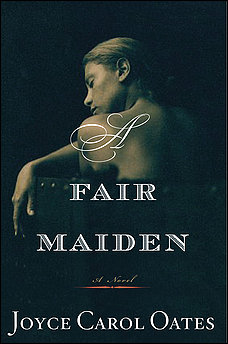Kazou Ishiguro is one of the most celebrated contemporary authors in Britain and the world. He has been nominated for the Booker Prize four times, and his most famous novel, the Remains of the Day, won the prize in 1989. I stumbled upon Ishiguro while still in high school. One of my dearest friends brought in his latest novel, Never Let Me Go, and as she explained the premise of the plot, I knew Ishiguro was a writer I would like and admire for years to come.
What sets Ishiguro apart in my opinion is his ability to gracefully invite the reader into the world and lives of his characters. Most of his novels are written in first person, and so the reader finds herself privy to the inner thoughts and workings of a character both flawed yet sympathetic. Ishiguro writes with such agility that the reader does not realize how attached he or she has become to the protagonist until the last page ends and that sinking, hollow feeling rises in his or her chest. The story ends and yet we feel like this person, these people should still exist.
And so I've determined that while Ishiguro is a talented writer, the short story form does not work for him as well as his longer pieces. While the stories in his latest collection, Nocturnes, are well written, I found the characters to fall flat. I couldn't attach to them, and I found some of them to be fairly unconvincing. This collection is bound together by the motifs of music, declining or dejected musicians, regret and the labor of finding meaningful relationships and love. Each story feels fairly similar, and like a good musical score the first and last story begin in the same place, Italy. Throughout the collection, the reader is introduced to a slew of different characters that somehow fall short of being meaningful.
I think that if this collection had been written by a lesser known author, I would have been able to find more praise. But because Ishiguro is so brilliant and his other works so powerful, I found these stories to be somewhat disappointing. So once again, I recommend this author highly, but just not that this particular book.
What sets Ishiguro apart in my opinion is his ability to gracefully invite the reader into the world and lives of his characters. Most of his novels are written in first person, and so the reader finds herself privy to the inner thoughts and workings of a character both flawed yet sympathetic. Ishiguro writes with such agility that the reader does not realize how attached he or she has become to the protagonist until the last page ends and that sinking, hollow feeling rises in his or her chest. The story ends and yet we feel like this person, these people should still exist.
And so I've determined that while Ishiguro is a talented writer, the short story form does not work for him as well as his longer pieces. While the stories in his latest collection, Nocturnes, are well written, I found the characters to fall flat. I couldn't attach to them, and I found some of them to be fairly unconvincing. This collection is bound together by the motifs of music, declining or dejected musicians, regret and the labor of finding meaningful relationships and love. Each story feels fairly similar, and like a good musical score the first and last story begin in the same place, Italy. Throughout the collection, the reader is introduced to a slew of different characters that somehow fall short of being meaningful.
I think that if this collection had been written by a lesser known author, I would have been able to find more praise. But because Ishiguro is so brilliant and his other works so powerful, I found these stories to be somewhat disappointing. So once again, I recommend this author highly, but just not that this particular book.





 RSS Feed
RSS Feed
